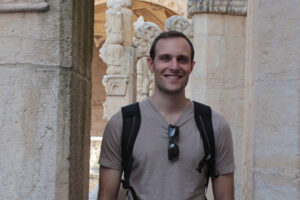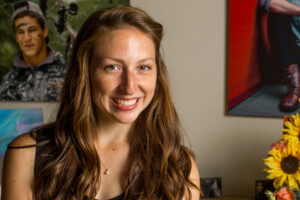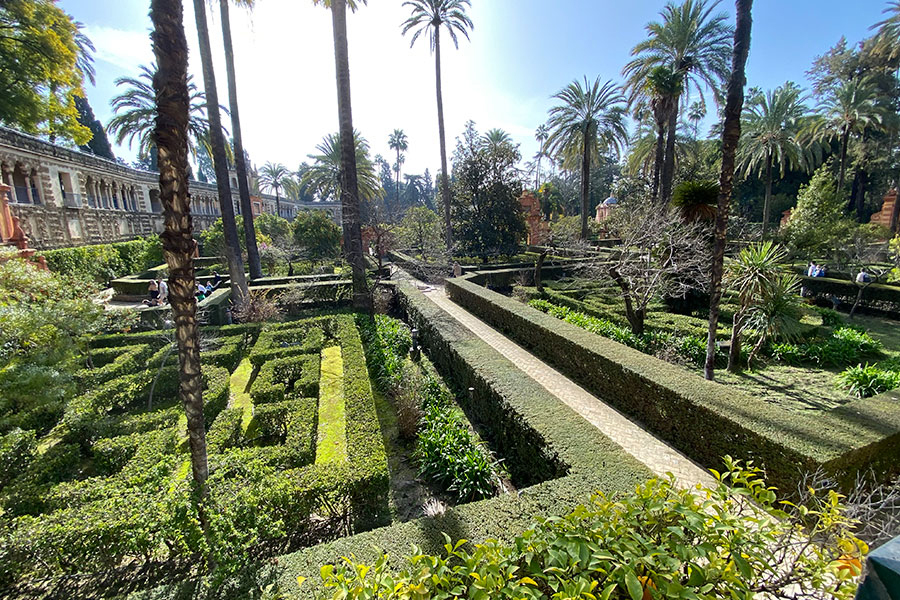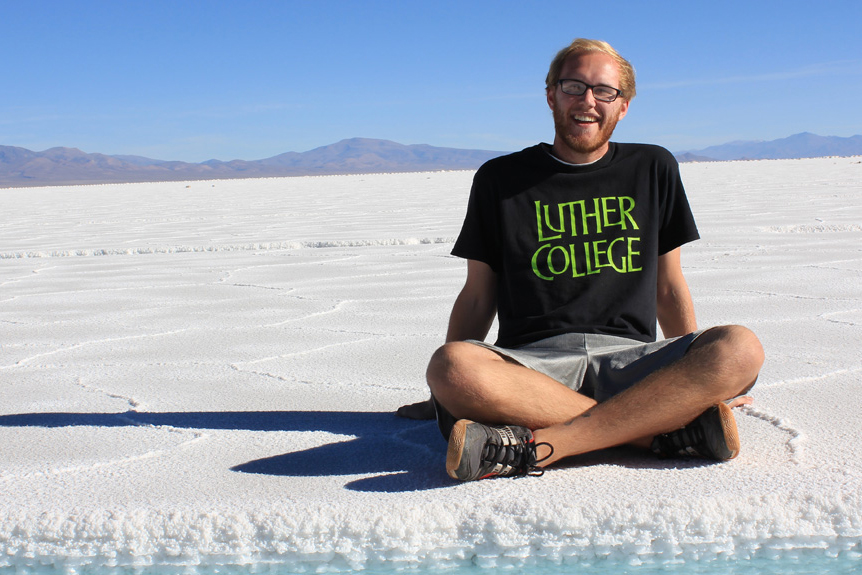Modern Languages and Cultures Department
Unlock the Power of Language
Language shapes the way we view the world and is fundamental to understanding people and cultures. Learning new languages and cultures broadens our worldview and helps us connect with others as engaged global citizens.
The Department of Modern Languages and Cultures offers courses taught in Chinese, French, German, Norwegian, and Spanish which inspire students to explore the languages and cultures of many regions of the world. We also offer courses taught in English under the Foreign Culture designator (FCUL).
We are a vibrant, multicultural community of scholars offering courses for all students who want to expand the limits of their world–both in Decorah and through study abroad. Come join us!
Learn more about our majors, minors, and programs
Chinese
Chinese is the only non-alphabetic language offered at Luther College. While there is no Chinese major or minor, Chinese 101 and 102 provide an introduction to speaking, reading, listening to, and writing Chinese. In addition to Chinese language courses, Foreign Culture courses offered in English, including China in the World (FCUL/IDS 142) and Chinese Cinema and Chinese Modernity (CHIN/FCUL/IDS 246) can help students fulfill the Global Engagement requirement. Students will also gain an appreciation of Chinese culture and contemporary life through activities such as Chinese calligraphy, Chinese cooking nights, the Moon Festival celebration, and the Asian Film Series.
A Lutheran Colleges China consortium program offers a special opportunity for students wishing to study in Hangzhou, China.
Luther students taking Chinese might consider a major or minor in International Studies.

About one-fifth of the world’s population, or over one billion people, speak some form of Chinese as their native language. Based on the Beijing dialect, Standard Mandarin is the official language of the People’s Republic of China and the Republic of China (Taiwan), as well as one of four official languages of Singapore. It is also one of the six official languages of the United Nations.
Foreign Culture Courses
Foreign Culture courses are taught in English by faculty in the Department of Modern Languages, Literatures, and Linguistics. Courses include film, literature, culture studies, history, and current global events. For more information about individual courses, please refer to the course catalog listings under each individual program.
Study Away
Studying away is a powerful way to immerse yourself in other languages and cultures and to become a globally engaged citizen. We offer many exciting J-Term, summer, and semester-long study away opportunities for language students. Learn more about available programs from Luther’s Center for Global Learning or chat with a professor.
Student Experience
Rose Sieve ’23, a mathematics/statistics and Spanish double major, studied in Salamanca, Spain, last spring. It was her first time outside the US. She says, “It was amazing to step out of my comfort zone and learn about a completely new culture.”
Connect with Jobs and Internships Via Handshake
Are you interested in a job or internship relating to the visual and performing arts? If so, visit Handshake. The tools can help you search for on-campus jobs and internships outside of Luther and make appointments with the Career Center staff.
Ryan Goos '16
While at Luther, Ryan worked as a Spanish and linguistics tutor. “In these situations, I learned how to explain complex concepts in simple and creative ways, which is a skill that is directly helping me now that I have been working as both a Spanish and English teacher in the United States and abroad.”
Meet Luther Alumni

Learn about Thomas Sines ’08 and how his study abroad experience in Argentina helped prepare him for his career.

View the Luther profile for Emily Voss ’13, photographer/owner, VOSStudios, Wausau, Wisconsin. Emily’s majors were art and Spanish.
The mission of the Department of Modern Languages and Cultures is to equip students with the knowledge and skills to understand how language shapes them and their world, and to meaningfully connect and engage with individuals from different backgrounds and cultures.
Exploring a language and culture other than one’s own both opens up new worlds and helps students better understand their own, enabling them to develop a mature worldview that engages multiple perspectives. Students who study languages, cultural production, and linguistics:
- understand how the complex systems of language and communication are shaped by cognitive, social, and cultural factors
- develop language proficiency and intercultural knowledge and skills that help them connect and communicate more fully with people whose language and culture are different from their own
- demonstrate understanding of the practices and perspectives of other cultures and reflect upon their own
- analyze the cultural production of and diversity within the non-English speaking world

